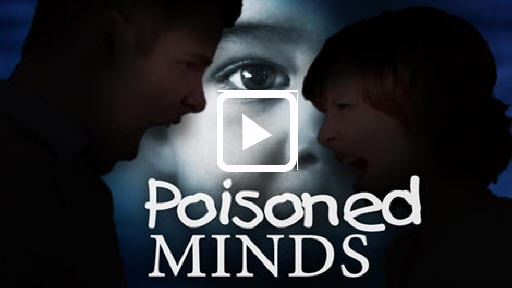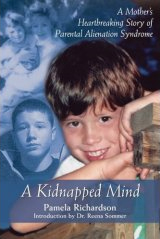The Emerging Problem of Parental Alienation
Family Law p. 807-8, Jordan's Publishing, U.K., by Caroline Willbourne and Lesley-Anne Cull, Barristers, December 1997
We are all used to the parent who is implacably opposed to contact, and both advocates and judges have learned to deal with such a hostile parent. The courts are increasingly aware of the control over contact proceedings that may be attempted by an implacably hostile parent (usually the mother, and will be referred to as such throughout this article). Judges are familiar with the ways in which the mother insists that contact would have such an adverse effect on her health and mental stability that it would inevitably have a detrimental effect on the child. As recent authorities show (see Re P (Minors) (Contact) (1996) The Times, May 15), a judge these days is much less likely to be persuaded that contact is not in the interests of the child, and an order for contact is usually made.
However, what can the court do when a parent has alienated a child to the point where he is expressing what appears to be a genuine desire not to have any contact with the non-residential parent?
To set the scene, the case will be one where the parent appears to espouse contact wholeheartedly in principle - yet the child is expressing anxiety or even fear at the idea of contact. Although the court welfare officer talking to this child may suspect that the mother is the real obstacle to contact and that she has coached the child, nevertheless it appears that the child is expressing genuine views; it may be difficult for the welfare officer to support his suspicions with concrete facts. The court has to rely on the recorded views of the child and, depending on the age of the child, more or less weight will be attached to his view.
More worryingly, the welfare officer may be completely persuaded by the apparent support the mother gives to the principle of contact and, therefore, place more credibility on what the child is saying. The danger here is that the mother will say that she wants the child to see the father, and may even go so far as to arrange contact herself, but covertly will continue to create anxiety in the child. She may well do this in a loving way, but through body language, subtle remarks and tone of voice her anxiety is transmitted to the child so that contact will fail and eventually wither completely. This is a far more insidious form of hostility, amounting to parental alienation - a phenomenon recognised by American psychologists and increasingly finding recognition amongst doctors in the UK.
How can lawyers recognise the symptoms of an alienating parent? We consider that the signs to look for are as follows:
- where the views expressed by the child (for example, 'I'm frightened of Daddy', or 'I hate Daddy') are not in any way borne out by the child's behaviour when observed with his father;
- where the mother 'enmeshes' others (who may become her witnesses) who then echo the child's fear or allegations and support the mother's view that contact can only begin very gradually. These others may express admiration that the mother is trying to promote contact;
- where the mother or others on her behalf hide the child from the father and pretend that it is a game 'to hide from Daddy';
- where the mother is reluctant to allow the child to be seen by independent psychologists although she may have enlisted the support of her general practitioner, health visitor, etc. as part of the enmeshment process;
- where the mother agrees to arrangements for contact and at the last moment 'pulls the plug', often citing a real or imagined incident whereby the father has upset the child in some way;
- where the mother is monitoring or trying to interrupt telephone contact between the child and his father;
-
where the child checks with his mother (which may merely be by using body language) that it is all right to answer questions asked by social workers or experts in the mother's presence;
- where the child does not answer questions naturally, but appears instead to give pre-programmed answers, or responds to a question by giving a wholly unrelated answer;
-
where the child uses age-inappropriate language which suggests that he has either picked up adult conversation or has been coached by the mother;
- where the mother insists on being present at all contact sessions, citing the child's need to feel secure, or the mother may say that the child has told her that he is too frightened to have contact unless she stays with him;
- where 'it is said that' letters and cards from the father mysteriously fail to arrive, although the mother encourages the child to write so as to demonstrate her commitment to contact;
- where 'it is said that', immediately after contact, the mother inquires of the child how he is feeling (for example 'have you still got that nasty tummy ache?'), implying that contact has been a painful experience for the child;
- where the mother alleges that the father has abused the child in some way, and she continues to insist on this even in the face of all expert evidence to the contrary. None the less, the mother may assure everyone that she does want to promote (sic) contact but insists that it will have to be re-established on a very gradual step-by-step basis and that continued supervision of the father whilst contact takes place is essential to prevent further abuse. The child himself may echo the allegations of the mother, appearing to believe that he has been abused.
The damage to a child of a mother adopting a strategy of alienation is both insidious and long term. What can the court do if it finds that a mother has alienated the child from his father to the extent that the child is refusing all contact and, in addition, seems convinced that the father poses a danger? The dilemma is that the court will have to take into account the expressed wishes of the child, particularly an older child, which may result in the father being prevented from having contact regularly, or at all. At the same time the court will have to consider the possibility that the child has been alienated to a degree that is tantamount to emotional abuse by the mother, and appreciate the danger of leaving this abuse unresolved. Given the insidious nature of alienation, it can be a difficult decision for the court to find the best solution for the long-term interests and welfare of the child.
The role of the expert can be significant in this situation. An expert will be able to point first to factors of the case which strongly suggest that there has been alienation by the parent with care and, in addition, advise the court on the prognosis for the future, for example, by assessing the short- and long-term effects on the child of persistent alienation and of the ability of the alienating parent to change. Cases of severe alienation come from a personality disorder or psychopathy, and in a recent UK case (Re W (1996) August (unreported)) a leading American psychologist held the view that the alienating itself often becomes the carer's 'job'. Whilst experts agree that it is difficult to be specific, it is thought that a child raised by a parent of this type is more likely to have a disturbed personality himself.
If there is a finding of fact that there has been alienation, how does the judge decide where the child's best interests lie? Some American psychiatrists, who have had wide experience in this field, advocate immediate removal of the child from the alienating parent and placement with the other parent where possible. They contend that empirical studies have shown that this approach is best for the child's psychological welfare. Further, in cases where there has been severe alienation, the child should have no contact with the alienating parent for as long as it takes to re-establish the relationship with the child and the previously absent parent. Contact with the alienating parent should then restart gradually and be monitored closely to ensure that the damaging behaviour does not recur.
A school of thought in the USA holds that if the child stays with the alienating parent, that parent will probably resort again to negative and destructive ways once litigation is over. Usually the child is not old enough either developmentally or intellectually to be able to see through the parent's covert behaviour. The child may also seek to please the parent who cares for him by reinforcing allegations made against the absent parent. In many instances, as soon as the professionals leave the case the alienating parent will make new allegations and create difficulties, so that contact agreed or ordered by the court will wither and die. This viewpoint had support from the two UK experts in Re W (above). The mother in that case had been awarded residence of the three children, partly on the basis that she was the more likely parent to promote contact. As soon as the court proceedings were over, she stopped contact, saying that the children were alleging sexual abuse by their father. The allegations were fully investigated and held to be completely unfounded. The mother continued to insist that she wanted contact to take place but that it had to be supervised at all times.
Is there any effective treatment for the parent who alienates? The view of a leading British psychologist is that there is treatment available but that its effectiveness depends upon it being long-term, psychoanalytically informed therapy (in the order of years rather than months), and upon the alienating parent acknowledging the problem and following the therapy programme. Therapy is based on teasing out and understanding the parent's unconscious mental process and how these affect day-to-day functioning, in order to change personality structure and bring a resolution to the underlying problem.
The difficulty is that if the child remains with this parent during the process of treatment, it may be some time before contact with the absent parent is re-established. It is for this reason that immediate removal of the child is advocated by experts. This is a Draconian solution and one which a judge may be reluctant to adopt, but it may be in the child's best interests in the long term to be removed from the insidious influence of an alienating parent.
Family Law is published by Jordan Publishing, 21 St Thomas Street, Bristol BS1 6JS U.K. www.familylaw.co.uk







